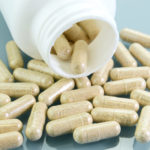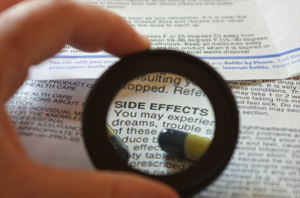 When you try and lay down at night to fall asleep do your legs start moving and twitching involuntarily? This is what is known as Restless Leg Syndrome. It can range from uncomfortable to incredibly annoying, even painful and lead to insomnia, which in turn can bring about other lack of sleep related health problems.
When you try and lay down at night to fall asleep do your legs start moving and twitching involuntarily? This is what is known as Restless Leg Syndrome. It can range from uncomfortable to incredibly annoying, even painful and lead to insomnia, which in turn can bring about other lack of sleep related health problems.
Restless leg syndrome is a chronic disorder that affects up to 10 percent of Americans and twice as many women as men, according to the Cleveland Clinic. The movements make it difficult to sleep or sit comfortably for long periods of time and can lead to insomnia or trouble staying awake during the daytime.
While restless leg syndrome can have several underlying genetic and health causes, those suffering from venous insufficiency may have symptoms consistent with RLS. Venous insufficiency is typically the result of blood clots and varicose veins and occurs when there is inadequate blood flow through the veins, which causes blood to pool.
The most common treatment for sufferers of venous insufficiency is a compression stocking or an elastic stocking that creates pressure around a target area on the leg. Compression stockings can improve blood flow and reduce swelling. Additional relief may be achieved by keeping your legs elevated, keeping your legs uncrossed when sitting, avoiding dietary triggers and, of course, regular exercise.
Some physicians may prescribe medications, such as an anticoagulant to thin the blood or a diuretic to draw fluid from the body.
More serious cases of venous insufficiency may require surgery to repair or remove veins. Those procedures could involve minimally invasive endoscopic surgery to tie off varicose veins, laser surgery to close a damaged vein or sclerotherapy — the injection of a chemical into a vein to shrink and permanently close it.
For those with a family history of venous insufficiency, medical experts recommend staying active, not smoking or quitting smoking and maintaining a healthy body weight. Talk to your healthcare provider about what type of treatment is best for you.
For a vein specialist referral, or for more information on vein disorders and treatments, visit http://www.westfloridaveincenter.com/contact/


 TMJ can be caused by your genetics, trauma to the jaw or even arthritis. Nocturnal tooth grinding and clenching can also play a role, though tooth grinders don’t always develop TMJ.
TMJ can be caused by your genetics, trauma to the jaw or even arthritis. Nocturnal tooth grinding and clenching can also play a role, though tooth grinders don’t always develop TMJ.

 Oddly, the answer may be “yes”.
Oddly, the answer may be “yes”.
 Irritable bowel syndrome – and the uncomfortable abdominal pain, gas and chronic diarrhea or constipation that goes with it – can be a mild inconvenience or a severe impediment to daily life, affecting an individual’s social and professional habits. Two out of every three people with IBS symptoms are female, according to the International Foundation for Functional Gastrointestinal Disorders.
Irritable bowel syndrome – and the uncomfortable abdominal pain, gas and chronic diarrhea or constipation that goes with it – can be a mild inconvenience or a severe impediment to daily life, affecting an individual’s social and professional habits. Two out of every three people with IBS symptoms are female, according to the International Foundation for Functional Gastrointestinal Disorders.